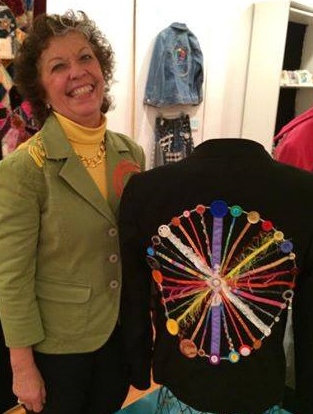How to Find the Magic in Being a CASIGY ™- That is,
A Sensitive or Gifted “Misfit”
Are you, or do you know someone who is –
C-reative, Curious, Complex
A-cutely Aware,
S-uper-Sensitive,
I-ntense, often Introverted; sometimes
G-ifted and maybe
Y-ou?
If this describes you, or someone you care about, then you might like this acronym CASIGY™. Highly sensitive people often ha ve many of these characteristics. Gifted people frequently, but not always, have all of them. Others who don’t have these traits may assume that there are many advantages to being creative, aware, sensitive, intense, and/or gifted. But those who are like this know that the brighter the light shines, the deeper the accompanying shadow, and often it also is that the more unique you are, the greater the difficulty you may have in connecting with other humans.
ve many of these characteristics. Gifted people frequently, but not always, have all of them. Others who don’t have these traits may assume that there are many advantages to being creative, aware, sensitive, intense, and/or gifted. But those who are like this know that the brighter the light shines, the deeper the accompanying shadow, and often it also is that the more unique you are, the greater the difficulty you may have in connecting with other humans.
In addition, for many Sensitive and Gifted students, sensitivity and high intelligence combine with asynchronous development, overexcitabilities, super-sensitivities and/or learning differences. These can create many gaps between potential and performance as well as gaps between the CASIGY™ and less sensitive, or less (dare I say it?) gifted people. This all too often results in sensitive and gifted students having a sense of inferiority, inadequacy and feeling deep discouragement. This topic of “Encouraging Sensitive and Gifted Students- Finding the Magic in Being a CASIGY™ MisFit” has been described by a CAGT past president as “something EVERY gifted student, parent and teacher needs to know”. It was originally requested and published as an article in the Australian NSWAGTC Gifted Journal in 2010. It then became a “requested repeat topic” from CAGT (Colorado Association for Gifted and Talented) 2011 and 2013 annual fall conferences.
Sharon is on a mission to help CASIGY™ students and adults thrive, heal and become fully alive. Please invite all the CASIGY students, parents, teachers, gifted program coordinators, school administrators, and health professionals that you know to hear this important discussion on Encouraging Sensitive and Gifted Students.
CASIGYs™ often observe that they are different from many others. Some feel like they are aliens from another planet, misfits who don’t belong in twenty-first century urban, extraverted societies. These differences can lead to feelings of disconnection, inferiority and even alienation and discouragement, especially for the most aware, the brightest and most sensitive among us.
Some employers, parents, teachers, youth leaders and understand that CASIGYs™ have great potential, and are eager to find ways to help encourage us. Others are annoyed, put off or even offended by our unique combination of abilities and vulnerabilities. We ourselves can also be annoyed, put off, or offended by our differences and the difficulties they can create.
In this LifeCraft™ Webinar, you’ll learn 
- How to identify Sensitive and Gifted student discouragement
- the most powerful, yet hidden tool available to help sensitive and gifted kids and teens overcome your discouragement
- four phases of overcoming discouragement
LifeCraft™ CASIGY™ Webinars are FREE. During our current development phase, the recordings are also free.
We have a limited number of places available. Register now for your FREE LifeCraft™ CASIGY™ Webinar
this Thursday, September 25, 2014 at 7pm MST:
The Webinar is over and got great reviews from those who attended! You can still access the FREE recording! Just register below, and you’ll get it!
[mc4wp_form]

